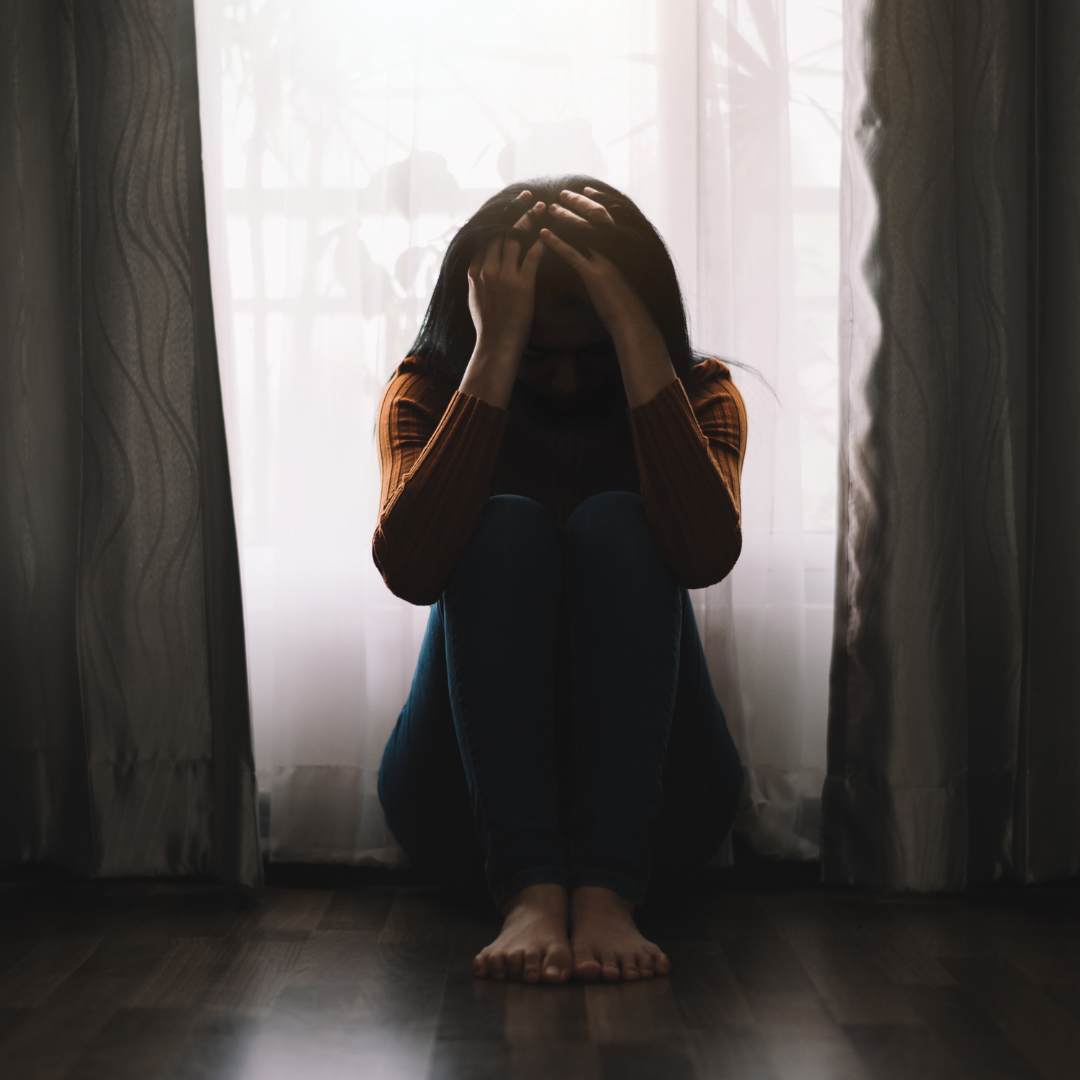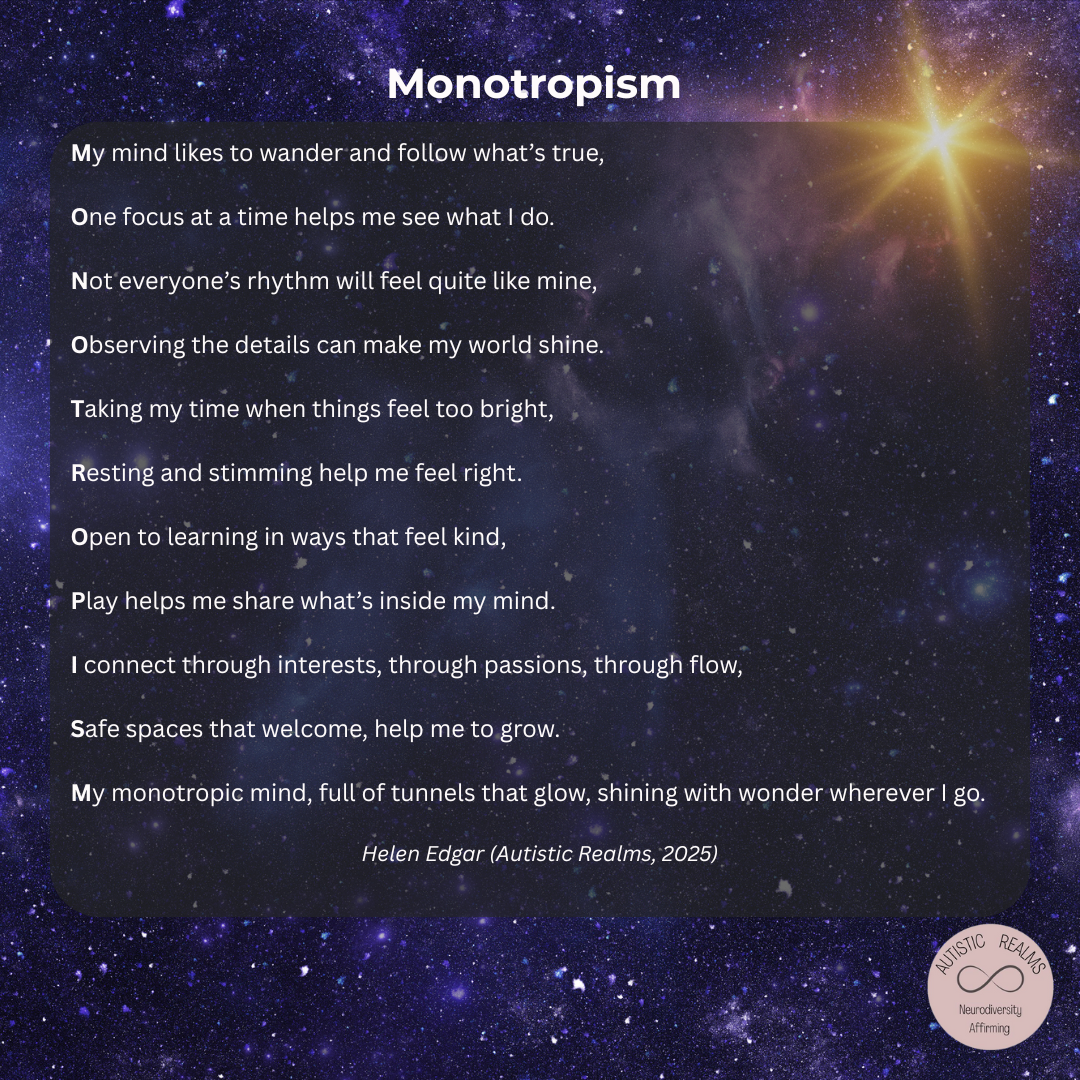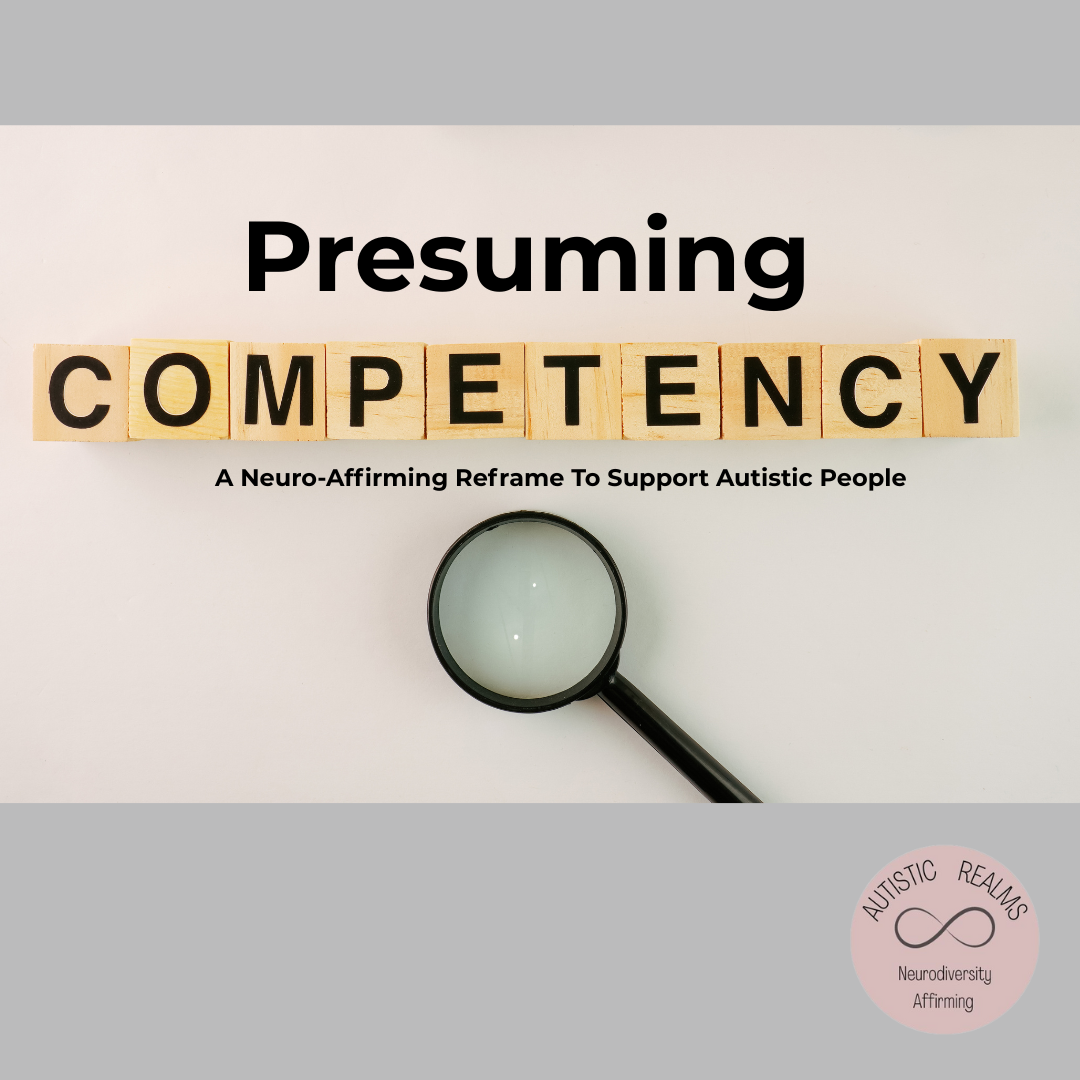Your basket is currently empty!

Autistic Mental Health: Beyond the Pathology Paradigm
This blog was written for the Autistic Mental Health Conference 2025, an event I’m proud to help facilitate as part of a collective push for change in how Autistic mental health is understood and supported. It was generously amplified by Angela Kingdon through the Autistic Culture Podcast, helping to spread the word and strengthen our shared call for Autistic-led, justice-focused conversations. Read more here.
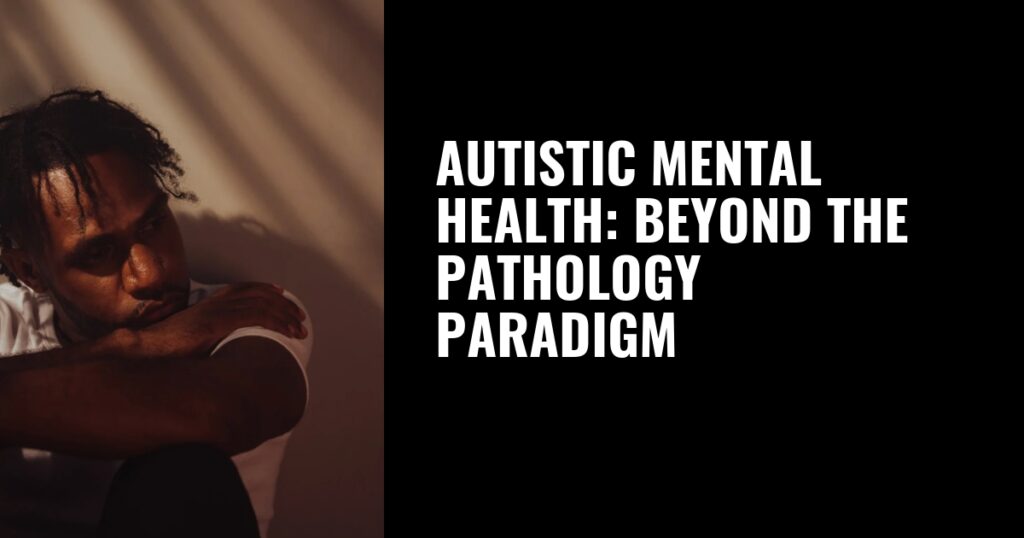
It’s not easy to define Autistic mental health. In a world where “mental illness” is often accepted as a pathology, something broken to be fixed, we rarely stop to ask why so many people are struggling, and especially why Autistic people are so disproportionately affected. It’s a complex interplay of identity, environment & belonging. Let’s move beyond the pathology paradigm and centre Autistic voices & lived realities.
Mental health is often medicalised in ways that physical health is not. While we can point to a broken bone or measure blood pressure, mental distress is more elusive. Increasingly, researchers and advocates are recognising that what we call “mental illness” might not be something wrong with us, but a natural response to prolonged adversity. In this view, mental health conditions are a form of neurodivergence, ways of thinking and feeling that emerge from surviving trauma and hostile environments. Our brains adapt to harm to keep us alive. These adaptations such as hypervigilance, shutdown, dissociation, psychosis and overwhelm are then labelled as disorders.
This matters deeply for Autistic people. We are not separate from our environments. We live in a world that often misunderstands, invalidates, and isolates us. For many of us, trauma is not the exception, it’s the norm. I have yet to meet an Autistic person who hasn’t experienced some form of trauma even if they are perhaps not yet recognising that within themselves, whether that be sensory trauma, communication invalidation, misattunement, masking, or systemic neglect.
The impact is stark. Research suggests that as many as 8 in 10 Autistic people have a mental health condition. Sadly, Autistic people have been found to have up to an eightfold increased risk of death by suicide compared to non-Autistic people (Brown et al., 2024). For Autistic children, the risk of thinking about or attempting suicide is 28 times higher than for their non-Autistic peers. These are not just numbers, they are lives cut short by systems that fail to meet our needs.
The latest Assuring Transformation NHS Digital data (April 2025) paints an equally troubling picture:
- 2,025 Autistic people and people with a learning disability are in mental health hospitals in England. Of these, 1,455 (72%) are Autistic.
- 240 under-18s are in inpatient units. Of these, 230 (96%) are Autistic.
- The number of Autistic people without a learning disability detained in mental health hospitals has increased by 141% since 2015.
- In 2015, Autistic people made up 38% of the total in hospital. Now it is 72% (National Autistic Society, 2025).
These statistics are not personal failings, they are systemic failures of education, healthcare, mental health services, and broader society to support Autistic people in ways that affirm our needs, identities, and ways of being.
Systemic injustice does not impact all Autistic people equally. Experiences of racism, ableism, sexism, queerphobia, transphobia, and classism often intersect, compounding barriers to care and amplifying harm. Autistic people who are multiply marginalised such as Autistic people of colour, LGBTQ+ Autistic people, or Autistic people in poverty are more likely to experience misdiagnosis, coercive treatment, and exclusion from community-based support. Any conversation about Autistic mental health must be grounded in intersectionality, recognising that liberation for one part of our community cannot be achieved without justice for all.
That’s why the Autistic Mental Health Conference 2025 is so important.
This groundbreaking event, run by Autistic people, for Autistic people, will take place on Saturday, August 16, 2025, both in person and online. It offers a vital space for collective reflection, learning, and action, with radical, compassionate, and affirming perspectives that challenge dominant narratives and centre lived experience.
This year’s lineup of speakers offers deeply insightful perspectives, including:
- Katie Munday – Shares the experiences of transgender and gender-diverse Autistic adults, focusing on feelings of (un)belonging.
- Tanya Adkin – Presents a thought-provoking talk based on Creating Autistic Suffering: Language, Survival, And The Work Of Change.
- Priscilla Eyles – Explores how systems of inequity can pave a pathway to cult abuse.
- Ed Shearer – Tells a powerful story of confronting systemic failures and driving neurodivergent-led change.
- Amanda Hind – Offers unique insights on a yet-to-be-announced topic.
- Nikki Smith – Highlights the transformative power of early intervention and timely diagnosis.
- David Gray-Hammond – Critically examines how psychiatric systems sustain power in the lives of Autistic people.
🎟️ Tickets & Discount: Use the code NEWSLETTER20 for 20% off tickets:
Click here to book
Autistic mental health is not just about treatment or diagnosis. It’s about understanding our lives, reclaiming our narratives, and creating a world where we can thrive, not just survive.
This blog was written for the Autistic Mental Health Conference 2025, an event I’m proud to help facilitate as part of a collective push for change in how our mental health is understood and supported. It was generously amplified by Angela Kingdom through the Autistic Culture Podcast, helping to spread the word and strengthen our shared call for Autistic-led, justice-focused conversations.
Join us, be part of this vital dialogue, and help pave the way toward more inclusive and equitable mental health support.
Autistic people deserve to thrive, not just survive.
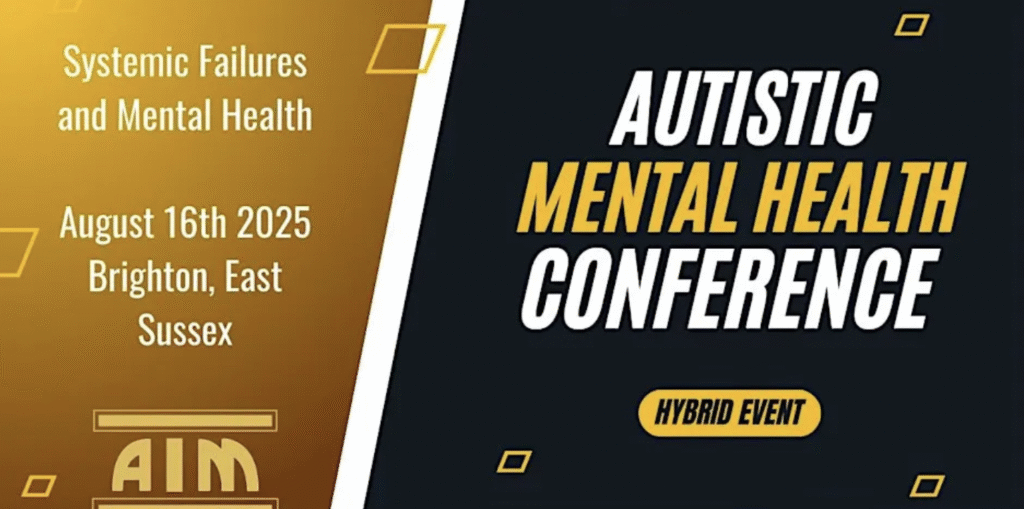
References & Further Reading
Botha, M., Dibb, B., & Frost, D. M. (2022). ‘It’s being a part of a grand tradition, a grand counter-culture which involves communities’: A qualitative investigation of autistic community connectedness. Autism, 26(8), 2151–2164. https://doi.org/10.1177/13623613221080248
Brown, C. M., Newell, V., Sahin, E., Cassidy, S., Forde, C., Wigham, S., & Richards, G. (2024). Updated systematic review of suicide in autism: 2018–2024. Current Developmental Disorders Reports, 11(3), 225–256. https://doi.org/10.1007/s40474-024-00308-9
Chapman, R. (2023). Empire of normality: Neurodiversity and capitalism. Pluto Press.
Frazer-Carroll, M. (2023). Mad world: The politics of mental health. Outspoken by Pluto.
Gray-Hammond, D., & Adkin, T. (2024, November 26). Creating autistic suffering: Autistic safety and neurodivergence competency. Emergent Divergence. https://emergentdivergence.com/2023/04/11/creating-autistic-suffering-autistic-safety-and-neurodivergence-competency/
Gray-Hammond, D. (2022). The New Normal: Autistic musings on the threat of a broken society, Amazon.
Gray-Hammond, D. (2025). Unashamed Autistic: Collected Writings On The Nature Of Autism And Autistic Pride, Amazon.
Milton, D. E. (2012b). On the ontological status of autism: The ‘double empathy problem.’ Disability & Society, 27(6), 883–887. https://doi.org/10.1080/09687599.2012.710008
National Autistic Society. (2025, May 28). Number of autistic people in mental health hospitals at record high. https://www.autism.org.uk/what-we-do/news/number-of-autistic-people-in-mental-health-ho-29_
Walker, N. (2021). Neuroqueer heresies: Notes on the neurodiversity paradigm, autistic empowerment, and postnormal possibilities. Autonomous Press.
Latest Posts
-
Autistic Burnout – Supporting Young People At Home & School

Autistic burnout in young people is real—and recovery starts with understanding. This post offers neuroaffirming ways to spot the signs, reduce demands, and truly support. 💛 #AutisticBurnout #Neuroaffirming #Monotropism #AutisticSupport
-
Monotropic Interests and Looping Thoughts

The theory of monotropism was developed by Murray, Lawson and Lesser in their article, Attention, monotropism and the diagnostic criteria for autism (2005). Monotropism is increasingly considered to be the underlying principle behind autism and is becoming more widely recognised, especially within autistic and neurodivergent communities. Fergus Murray, in their article Me and Monotropism:…
-
Map of Monotropic Experiences

Monotropism seeks to explain Autism in terms of attention distribution and interests. OSF Preprints | Development and Validation of a Novel Self-Report Measure of Monotropism in Autistic and Non-Autistic People: The Monotropism Questionnaire This map highlights 20 common aspects of my personal monotropic experiences. How many do you experience? Where are you on the map…
-
Autistic Burnout – Supporting Young People At Home & School

Being autistic is not an illness or a disorder in itself, but being autistic can have an impact on a person’s mental and physical health. This is due to the often unmet needs of living in a world that is generally designed for the well-being of people who are not autistic. In addition, three-quarters of…
-
The Double Empathy Problem is DEEP

“The growing cracks in the thin veneer of our “civilised” economic and social operating model are impossible to ignore”, Jorn Bettin (2021). The double empathy problem (Milton, 2012) creates a gap of disconnect experienced between people due to misunderstood shared lived experiences. It is “a breakdown in reciprocity and mutual understanding that can happen between people…
-
Top 5 Neurodivergent-Informed Strategies

Top 5 Neurodivergent-Informed Strategies By Helen Edgar, Autistic Realms, June 2024. 1. Be Kind Take time to listen and be with people in meaningful ways to help bridge the Double Empathy Problem (Milton, 2012). Be embodied and listen not only to people’s words but also to their bodies and sensory systems. Be responsive to people’s…
-
Autistic Community: Connections and Becoming

Everyone seeks connection in some way or another. Connections may look different for autistic people. In line with the motto from Anna Freud’s National Autism Trainer Programme (Acceptance, Belonging and Connection), creating a sense of acceptance and belonging is likely to be more meaningful for autistic people than putting pressure on them to try and…
-
Monotropism, Autism & OCD

This blog has been inspired by Dr Jeremy Shuman’s (PsyD) presentation, ‘Neurodiversity-Affirming OCD Care‘ (August 2023), available here. Exploring similarities and differences between Autistic and OCD monotropic flow states. Can attention tunnels freeze, and thoughts get stuck? Autism research is shifting; many people are moving away from the medical deficit model and seeing the value…
-
Monotropism Questionnaire & Inner Autistic/ADHD Experiences

Post first published 28th July 2023 Over the past few weeks, there has been a sudden surge of interest in the Monotropism Questionnaire (MQ), pre-print released in June 2023 in the research paper ‘Development and Validation of a Novel Self-Report Measure of Monotropism in Autistic and Non-Autistic People: The Monotropism Questionnaire.‘ by Garau, V., Murray,…
-
Penguin Pebbling: An Autistic Love Language

Penguin Pebbling is a neurodivergent way of showing you care, like sharing a meme or twig or pretty stone to say “I’m thinking of you,” inspired by penguins who gift pebbles to those they care about.
-
Monotropism: A Poem

A poem about monotropism for children, young people, families and educators to open conversations about Autistic & ADHD experiences.
-
Understanding the Double Empathy Problem: A Guide For Autistic People & Families

FREE Neuro-Affirming Communication & Sensory Passport + Training Support Autistic people through better understanding of communication, sensory needs & double empathy.
-
Presuming Competence: A Neuro-Affirming Reframe To Support Autistic People

When “presume competence” is applied without a neuro-affirming lens, it can become a harmful, ableist expectation

